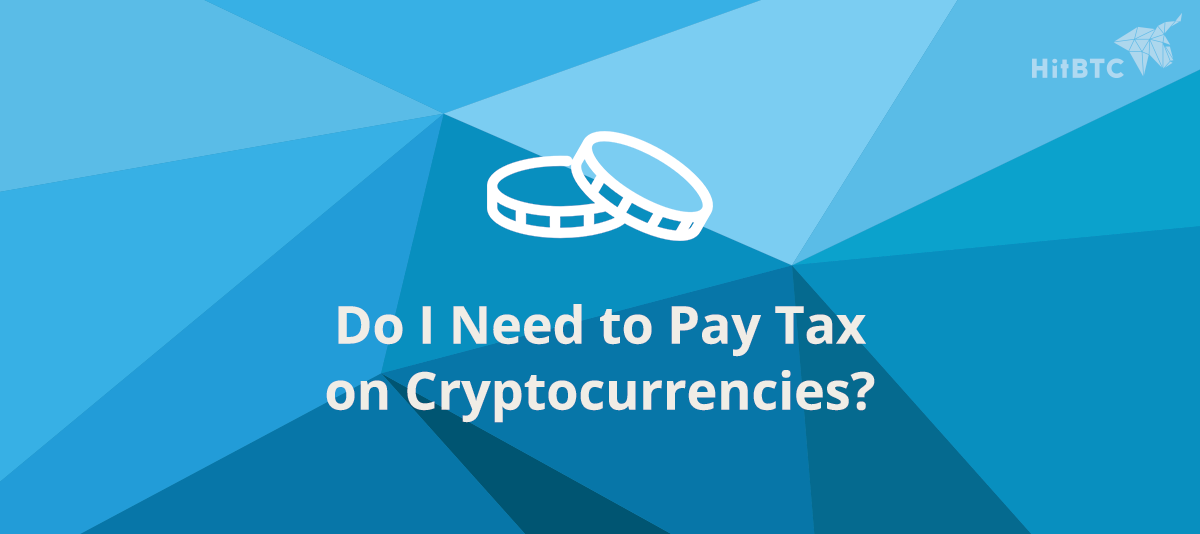Tax on Cryptocurrencies

Do I Need to Pay Tax on Cryptocurrencies?
The taxation and regulation on Bitcoin and other cryptocurrencies varies a lot from country to country. In this article we’ll look at some of the most common guidelines that are best to keep in mind when dealing with cryptocurrencies. In any case it is also best to check with your local tax authority for the specific laws that apply in your country. This article was put together to give you a general idea on the taxation of cryptocurrencies and is not legal or accounting advice.
Income Tax on Cryptocurrencies
Let’s look at some cases where you are most likely needed to pay income tax on your bitcoin profits:
Trading
You will need to declare and pay income tax on your profits generated from trading cryptocurrencies. Your income from trading cryptocurrencies would be treated in the same way as trading ForEx or Stocks – if you make a profit you must declare and pay tax on it. Granted it is more difficult to check how many Dogecoins you have but profits must be declared nonetheless. Whether you do it through an exchange or not. For example – you buy 100€ worth of Dogecoins, the price then changes and your coins are now worth 120€, your 20€ profit is taxable with income tax.
Mining
Yes, you will also need to pay tax on the profit of your cryptocurrencies that you have received through mining. It will depend on the country you live in. You will need to declare and pay income tax when you’ve changed your coins into a fiat currency. For example – your awesome computer solved some problems and now as a result you have 5 Bitcoin. You then decide to change them into US Dollars. You sell your coins and make $1500 – income tax is due on this amount.
Receiving Cryptocurrencies for Services
Do I have to pay tax if I receive cryptocurrencies as a payment for my services?
Yes, think of it as it was fiat currency. For example you help fix your neighbours car and he sends you some Litecoin in return. The government would see that as an income and want their share. Of course they are less likely to find out if it is a one off occasion but the law applies nonetheless.
Value Added Tax or Capital Gains Tax
Do I have to pay Value Added Tax on cryptocurrencies? This is very diverse in different countries and you definitely need to check with your local tax authority. Most countries nowadays have decided that cryptocurrencies should be exempt from VAT much like fiat currencies, however there are still a lot of countries that see cryptocurrencies more like commodities in which case VAT or Capital Gains Tax would be due when you sell your coins on the whole amount. Personally I think this is wrong and cryptocurrencies should be looked at as a currency. For example if as a business you sell 10kg of apples and receive $10 in return, if you then need to exchange your dollars to euros and would need to pay VAT on the whole amount again that would be a little bit silly wouldn’t it? Of course you would still be expected to pay VAT on the goods sold but some countries would essentially tax you twice. Once again regarding VAT or Capital Gains Tax, please check the laws that apply in your country. Normally as an individual and not a business VAT does not apply.
Hopefully this article gives some insight to the tax on cryptocurrencies.
Normally the rule is – you don’t have to pay tax on simply purchasing cryptocurrencies but if you’ve made some money, your government will want a piece of it as with any other means that you might’ve made a profit with. And yes, they are probably not going to find out how much coins you have. Not declaring any sort of profits is normally classed as fraud though.
